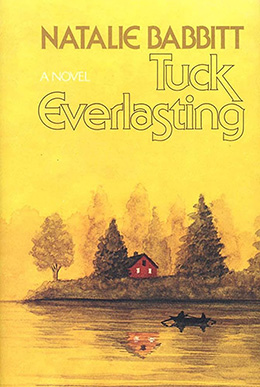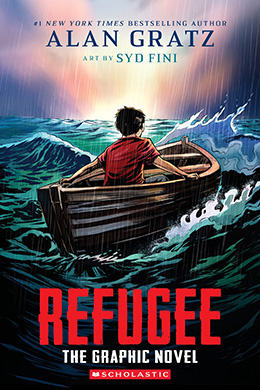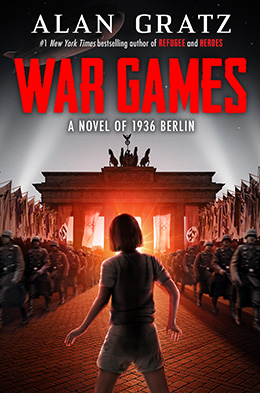Avi’s 2025 Summer Blog Series
Alan Gratz
From Avi: As I have for the last three summers, (summer of 2024, summer of 2023, summer of 2022) I’ve invited 13 admired authors to write for my blog for the next three months. I hope you’ll tune in each Tuesday to see who answered this year’s question, which we hope provides you with inspiration. And by the end of the summer, you’ll have new authors to follow!
What’s your favorite strategy for encouraging young people to read?

Teachers and parents often tell me that my novels are great for getting reluctant readers to love books. Which is very flattering! I was a reluctant reader as a boy myself, and I’m happy to bring like-minded young people into the book-loving fold.
I have a lot of strategies for keeping even the most reluctant of readers on the edges of their seats. Getting to the adventure as quickly as I can — in the first few pages, if possible. Short chapters with cliffhanger endings. Dynamic and unusual settings. Characters who are at once unique and relatable. High stakes stories — real life and death stuff.
Beyond all those techniques though, there’s one overriding thing that has been a hallmark of all my most successful books: I always take my young readers seriously.
As a kid, I couldn’t stand it when adults talked down to me, or didn’t tell me the whole truth. And I knew when it was happening. All kids do. They have a sixth sense for when adults are giving them the run-around. And there is no surer way to lose a young reader. Lie to them, or cover things up, and they’ll drop your book and never come back. But tell them the truth — even better, the hard truth — and they will hang on your every word.
When I first understood as a young boy that I was mortal — that eventually this awesome thing called life was going to come to an end — I was horrified. I was so upset that I would stay up at night, afraid that if I closed my eyes I would die in my sleep. Even more scandalous to me was that all the adults in my life just accepted that they were going to die. How could everybody just be cool about this? Why wasn’t everyone freaking out every minute of every day?
My parents quickly grew tired of my fears. “You’re not going to die for a long time,” they would tell me — as if the fact that it was many years down the road was any consolation at all! Dying tomorrow, or dying eighty years from now — what was the difference? It still meant that life would one day come to an end, and I just couldn’t accept that. But no one took my fears seriously.
 Until I read Natalie Babbitt’s Tuck Everlasting in the seventh grade.
Until I read Natalie Babbitt’s Tuck Everlasting in the seventh grade.
I picked the book up as reluctantly as I picked up every other book. But here, to my surprise, was a story about the cycle of life and death. About a family of people who’d actually beaten death — and wished they hadn’t. Winnie, the main character, has a decision to make: drink from a spring that will grant her eternal life, or experience life the way everyone else does, by growing older and trying to enjoy every distinct stage of it along the way.
Now, me, I would have drunk the spring water and become immortal in a heartbeat, no matter what Ma and Pa Tuck told me. (And I still would!) But the important thing was that here, at last, was an adult taking my questions about life and death seriously. I may not have agreed with the decisions of the main character, but I felt seen in a way that no other book had made me feel seen before.
It was a profound experience, and one I’ve tried to duplicate every time I’ve written a book for young readers. I know that each new book I’m writing won’t be that kind of story for everyone who picks it up. For most of my readers, my stories will just be page-turners they can’t put down. And that’s win enough! But somewhere out there is a reader who is struggling to understand the Holocaust, or terrorism, or war, or refugees, or bullying, or climate change, or whatever it is I’m writing about, and for that young person, my book may be the first time an adult has said, “I see you. I hear you. I may not have all the answers, but let’s talk about it.”
That’s a big responsibility, and one I don’t take lightly. Because even though kids want to know everything, and I want to tell them nothing but the truth (to borrow a phrase), they’re often not ready for the truth. Not all of it. So I tell them what they can handle, and leave the rest for them to discover as they get older.
Or, as the great Kate DiCamillo says, “Tell the truth, but make it bearable.”
That’s the best strategy I’ve ever heard for getting young people to read.
Particulars
Alan Gratz is the #1 New York Times bestselling author of more than twenty novels, graphic novels, and novellas for young readers, including Heroes, Two Degrees, Captain America: The Ghost Army, Ground Zero, Refugee, Allies, Resist, Prisoner B‑3087, and Ban This Book. A Knoxville, Tennessee native, Alan is now a full-time writer living in Portland, Oregon with his family.



3 thoughts on “2025 Summer Blog Series: Alan Gratz”
Such a terrific blog. Genuine advice for reaching reluctant readers. Thank you, Mr. Gratz.
You are my favorite children’s book author. I have enjoyed your books, and as a SpEd para (for 27 years),b I try to encourage kids, who may not be the “real readers” to try them. I liked Refugee, Prisoner B‑3087 and Projekt 1065. We have also had teachers that have picked them for “class books”, which is always fun.
I look forward to reading more of your books.
More inspiration from Alan Gratz and Kate DiCamillo. Thank you for sharing great advice!